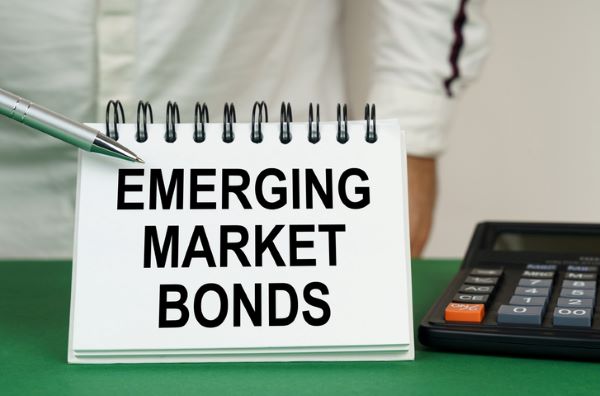ii view: Ashmore suffers further fund outflows
Shares in this emerging markets fund manager have underperformed the FTSE 250 index year-to-date, inflating the dividend yield. Buy, sell, or hold?
13th October 2023 11:43
by Keith Bowman from interactive investor

First-quarter trading update to 30 September
- Total Assets under Management down 8% from the previous quarter to $51.7 billion
Chief executive Mark Coombs said:
"Emerging Markets were largely rangebound this quarter and overall delivered slightly negative returns. After three quarters of positive returns, such a period of consolidation within a longer recovery cycle is normal, and there continue to be positive fundamental trends in Emerging Markets.
"Ashmore continues to deliver longer-term outperformance for clients across a broad range of strategies and is well-positioned to benefit from further recovery in Emerging Markets.”
- Invest with ii: Top UK Shares | How to Start Trading Stocks | Open a Trading Account
ii round-up:
Specialist emerging markets (EM) fund manager Ashmore Group (LSE:ASHM) today detailed a withdrawal of funds ahead of City estimates given heightened institutional client fears regarding the outlook for interest rates and economic prospects.
A net outflow of $2.9 billion in client monies was around double that expected by analysts, which when combined with a $1.3 billion fall in the value of investments held during the first quarter to the end of September, left assets under management down 8% from the fourth quarter to $51.7 billion.
Shares in the FTSE 250 company fell more than 6% in UK trading having come into this latest news down by close to a quarter year-to-date. That’s similar to fund manager Rathbones Group (LSE:RAT) although in contrast to a 7% gain for computer driven hedge fund manager Man Group (LSE:EMG). The FTSE 250 index itself is down close to 8% so far in 2023.
Ashmore invests in asset classes including government and corporate debt, equities, and real estate across emerging markets on behalf of its institutional and retail clients.
Fund outflows during the period were focused on government and corporate debt investments held, along with some equity related monies.
Ashmore blamed a 2-3% drop in EM indices over the quarter on weak Chinese economic data and investor fears that developed world interest rates will remain high for longer.
But it also flagged interest rate cuts in many EM countries given falling inflation rates as a reason for optimism going forward. Bond prices usually rise as rates are cut and vice versa.
A second-quarter trading update is scheduled for 15 January.
ii view:
Started in 1992 as part of the Australia and New Zealand Banking Group, Ashmore became independent in 1999, going on to list on the London Stock market in 2006. Most of its investments are made across the debt markets, with around 12% in equities and around 3% in alternative assets.
For investors, the tough economic backdrop and the ongoing push by central banks to drive inflation down to a 2% target continued to raise question over future interest rate policy. Wars, including the conflict in Israel, generate uncertainty for the price of oil, a key inflation component. Geopolitics and changing relationships between the West and countries such as Russia, China and even India are not to be overlooked, while an estimated future price/earnings ratio above the three-year average may suggest that the shares are still not obviously cheap.
- The Income Investor: don’t underestimate the value of dividend growth
- The four FTSE 100 income stars returning big money in October
- Bond Watch: what ‘higher for longer’ rates mean for bond prices
More favourably, Ashmore’s specialist focus on emerging markets helps set it apart from the pack, with emerging economies tipped to grow faster than their developed counterparts. It seems likely that we're either at or vey near the peak in US interest rates, potentially easing economic headwinds, while consolidation across the asset management industry is also a possibility.
There's been no change in the total annual dividend per share over the last four years, and there is speculation about whether Ashmore can keep up even this level of payout. An historic and forecast dividend yield of over 9% is likely to attract the attention of speculative income focussed investors, but a sustained share price recovery appears likely only when the rate cycle turns and the tide of fund outflows begins to reverse.
Positives:
- Group Cash held
- Attractive dividend (not guaranteed)
Negatives:
- Uncertain economic outlook
- Fee pressure from ETF funds
The average rating of stock market analysts:
Weak hold
These articles are provided for information purposes only. Occasionally, an opinion about whether to buy or sell a specific investment may be provided by third parties. The content is not intended to be a personal recommendation to buy or sell any financial instrument or product, or to adopt any investment strategy as it is not provided based on an assessment of your investing knowledge and experience, your financial situation or your investment objectives. The value of your investments, and the income derived from them, may go down as well as up. You may not get back all the money that you invest. The investments referred to in this article may not be suitable for all investors, and if in doubt, an investor should seek advice from a qualified investment adviser.
Full performance can be found on the company or index summary page on the interactive investor website. Simply click on the company's or index name highlighted in the article.